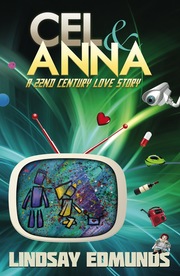I don't remember exactly when TV shows started to depict computers as part of everyday life. The series My So-Called Life ran from 1994 to 1995, and although it centered around a fifteen-year-old, there were no computers. I saw an episode not long ago, and their absence was startling. Look! Angela Chase talks on a telephone that has a cord. She doesn't text anyone or own an MP3 player. She does her homework with pen and paper.
That was only sixteen years ago. Yet Angela Chase's world is gone.
There aren't many advantages to learning how to use computers as an adult -- none, actually. I play permanent catch-up, and I will never catch up to the people who learned as children.
But I was witness to an amazing hinge in history: those days in the late 1980s and early 1990s when personal computers were about to change the world forever and everybody knew it.
At the time I had a Mac Plus, a castoff that had belonged to my brother, who is a programmer. That little beige toaster was the computer that taught me how to use computers, and it is the only one of my several Macs for which I feel nostalgia. Of course the nostalgia is not really for the machine, but for the time.
In the 1990s, I was part of the Macintosh user group Washington Apple Pi. Even then I knew the Internet was going to be the Next Thing, although I barely knew how to get on it.
These days I work on a powerful iMac and use two monitors, a high-speed modem, and a router. The Wii downstairs is set up to enable live streaming of video from Netflix.
The Internet is essential. I email friends and colleagues. I pay bills online. I am on Facebook and Twitter. I blog here at the Huffington Post and also at Writer's Rest.
All of which brings me round to the fantasy novel I recently published: Cel & Anna: A 22nd Century Love Story.
I am not a logical candidate to write a novel featuring a computer, even in the realm of fantasy. This is because I say things like "the Wii and Netflix are talking to each other."
I asked my brother the programmer to explain the Wii-Netflix conversation to me using simple language and metaphors a child could understand. He sent me a long, heroic email. Here is the beginning of it:
Well, quite a few things are happening.
First, Wii's are internet-enabled, in the sense that they know how to look on the Internet to get changes to their software, or more particularly, to connect to "servers" that will put the user of a Wii in touch with other gamers. There is a reasonably powerful computer in a Wii. Wii's (obviously) already know how to make the electrical signals that televisions want to display images. In a multi-player Wii game the computers in the Wii's of the players all connect to a server someplace and as each of the players moves about in the game all his moves are sent to the server which then broadcasts them to all the other players. This obviously happens pretty fast and the game is designed to factor in a bit of network latency.
The way one computer finds another on the Internet is interesting and the subject of a whole separate explanation, but for now suffice it to say that it uses IP numbers -- those numbers that look like 11.22.33.44 (they are running out of these numbers, which is a separate issue). The point is that the computer in the Wii can be told to look for servers at Netflix (or anywhere else) as easily as it can be told to look for servers at Nintendo. So the Wii can connect to Netflix's movie servers. Netflix does not just have one set of these, by the way -- they are distributed geographically all over the country to get as close as feasible to people who want the content -- the movies -- from them. Through a little bit of network magic your Wii finds Netflix servers that are close and available. So now the Wii is prepared to accept content from the Netflix servers and change that content into a TV-ready form. The computer in the Wii can repurpose the buttons on the Wii remote so they behave as we are used to when playing a video (i.e., pause, play, fast forward, etc), and so it becomes a device that can receive and process streaming video.
"How the Internet works is reasonably complicated," he said.
When I first began Cel & Anna, I did research into how computers work, but abandoned the effort. As Foghorn Leghorn said when his genius nephew Egghead Junior held up a paper covered with equations, "Knowing the answer wouldn't do me any good anyway."
Yet this subject chose me. That is really what it felt like. I can relate to the hapless Edwardian gentleman chosen by Edward Gorey's osbick bird.
Only after Cel & Anna was finished did I realize why the story would not let me go. Because I could remember the time when the rivers changed direction. When "before computers" became "after computers."
In Cel & Anna I imagine a second revolution so great that it dwarfs the one I actually did see. Of course it could not happen. Never could things change so drastically again. :-)

